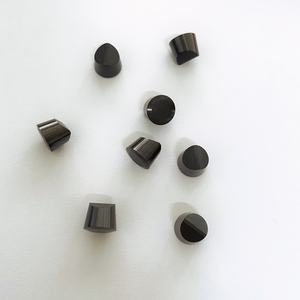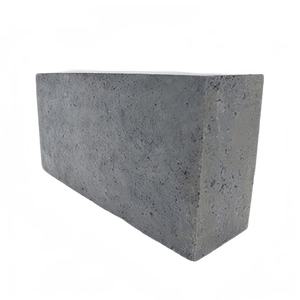Discover Premium Ceramic Products | Durability & Elegance United | Advanced Ceramics
PRODUCT PARAMETERS
Description
Introduction of Boron Carbide Ceramics
Boron carbide ceramics is an inorganic, non-metallic material with carbon and boron as its main components, and its chemical formula is B4C. Since its discovery in the early 20th century, this material has attracted a great deal of attention because of its unique physical and chemical properties. Boron carbide ceramics have an extremely high hardness, second only to diamond and cubic boron nitride, which makes it important in the field of wear-resistant materials. It also exhibits excellent corrosion resistance, high-temperature stability and low-density properties, attributes that make it ideal for the manufacture of bullet-proof vests, nozzles, bearings and other mechanical components that require high wear resistance. Boron carbide ceramics can also be prepared in a variety of shapes and sizes through different processes to meet the needs of different industries.
Characteristics of Boron Carbide Ceramics
Boron carbide ceramics are known for their excellent performance characteristics, starting with their ultra-high hardness and strength, which makes them resistant to severe abrasion and scratching, making them ideal for use in cutting tools and abrasives. Secondly, the material possesses excellent chemical stability and is less likely to react with chemicals such as acids and alkalis, even in extreme environments, making it widely used in certain key components in the chemical industry. In addition, the superior thermal stability of boron carbide ceramics and their ability to maintain structural and property stability at extremely high temperatures makes them one of the key materials in the aerospace and nuclear industries. Finally, it is worth mentioning its lightweight properties, which, due to its low density, make boron carbide ceramics an ideal option for application scenarios that require light weight but high strength. Together, these characteristics give boron carbide ceramics a wide range of applications.
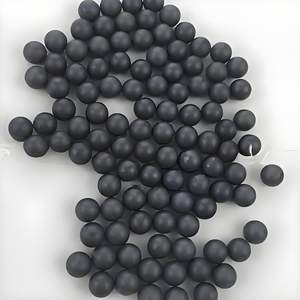
(B4C Boron carbide ceramic plate sheet tile)
Specification of B4C Boron carbide ceramic plate sheet tile
B4C boron carbide ceramic plate sheet floor tile is a high-performance material recognized for its extreme hardness and light-weight residential properties. It is made from boron carbide powder with advanced sintering procedures. This product has a Vickers hardness of over 30 Grade point average, making it among the hardest porcelains offered. It is lighter than many steels, with a density of around 2.52 g/cm THREE. These attributes make it perfect for applications requiring wear resistance, ballistic defense, and toughness in rough environments.
The key use of B4C ceramic plates is in body armor and armed forces cars. It stops high-velocity projectiles efficiently. Its ability to take in influence power lowers damage to secured surfaces. Industries also use it for rough blasting nozzles, cutting devices, and wear-resistant linings. It executes well in high-temperature settings, keeping security as much as 1,800 ° F (982 ° C). Its chemical inertness allows it to resist acids, antacid, and destructive gases.
Technical requirements include a flexural strength of 300-400 MPa and a compressive toughness surpassing 2,800 MPa. Thermal conductivity is reduced, around 30-42 W/m · K. Electric insulation buildings make it ideal for electronic components. Custom-made dimensions and thicknesses are offered, with common densities varying from 5 mm to 25 mm. Surface area finishes can be polished or left as-sintered based on application needs.
B4C surpasses materials like silicon carbide and alumina in solidity and weight reduction. It is more costly however supplies longer service life in severe problems. Machining is challenging due to its hardness. The majority of components are created to near-net form during production. Limited resistances call for ruby grinding tools.
Applications reach atomic power plants as neutron-absorbing shields. Its high neutron capture cross-section makes it crucial for radiation control. Dealing with B4C products needs care to prevent side cracking. Proper storage in completely dry problems avoids moisture-related degradation.
The material is available in conventional sizes or custom orders. Preparations vary based on intricacy. Suppliers supply technological assistance for design optimization. Testing information, consisting of ballistic certification and thermal performance reports, is supplied upon request.
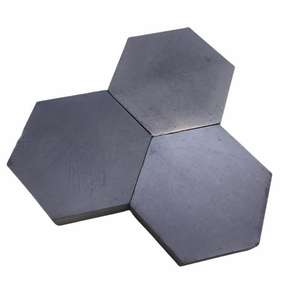
(B4C Boron carbide ceramic plate sheet tile)
Applications of B4C Boron carbide ceramic plate sheet tile
Boron carbide (B4C) ceramic plates are utilized in many industries due to their unique homes. They are very tough, lightweight, and immune to use, warm, and chemicals. These qualities make them optimal for high-performance applications.
In armed forces and protection, boron carbide plates are frequently utilized for body shield and lorry defense. The product’s firmness stops bullets and shrapnel effectively. It is lighter than steel or other ceramics, lowering weight for soldiers and equipment. Armor panels made from B4C are located in armors, helicopter seats, and armored cars.
Industrial settings depend on boron carbide for rough and cutting devices. Its hardness makes it appropriate for sandblasting nozzles, grinding wheels, and water jet cutter elements. Machinery components subjected to friction, like seals and bearings, make use of B4C to extend life span. The ceramic withstands chemical deterioration, making it valuable in rough environments with acids or antacid.
Atomic energy applications benefit from boron carbide’s capability to soak up neutrons. It is utilized in control rods and shielding systems within activators. The product aids manage nuclear responses securely. It additionally endures radiation damages, making sure long-term security in reactor cores.
Aerospace and air travel industries utilize B4C for components requiring heat resistance. It performs well in high-temperature environments, such as generator blades or heat shields. The ceramic’s reduced density helps reduce gas intake in aircraft and spacecraft.
Everyday uses include precision devices and wear-resistant components in electronics making. B4C’s sturdiness guarantees reliability in gadgets like cord drawing dies or semiconductor processing tools. Its thermal security stops deformation under intense warm throughout production procedures.
Boron carbide’s versatility originates from its mix of firmness, agility, and resistance to extreme problems. Developments in making have made it extra obtainable for specialized applications. Study remains to broaden its usage in arising technologies.
Company Introduction
Advanced Ceramics founded on October 17, 2014, is a high-tech enterprise committed to the research and development, production, processing, sales and technical services of ceramic relative materials and products.. Since its establishment in 2014, the company has been committed to providing customers with the best products and services, and has become a leader in the industry through continuous technological innovation and strict quality management.
Our products includes but not limited to Silicon carbide ceramic products, Boron Carbide Ceramic Products, Boron Nitride Ceramic Products, Silicon Carbide Ceramic Products, Silicon Nitride Ceramic Products, Zirconium Dioxide Ceramic Products, Quartz Products, etc. Please feel free to contact us.(nanotrun@yahoo.com)

Payment Methods
T/T, Western Union, Paypal, Credit Card etc.
Shipment Methods
By air, by sea, by express, as customers request.

5 FAQs of B4C Boron carbide ceramic plate sheet tile
What is B4C boron carbide ceramic used for?
B4C boron carbide ceramic plates are used in armor systems. They protect against bullets, shrapnel, and high-impact forces. This material is common in military gear, body armor, and vehicle plating. It is also used in industrial settings for wear-resistant parts like sandblasting nozzles.
How strong is boron carbide compared to other ceramics?
Boron carbide is one of the hardest materials known. It ranks third on the Mohs hardness scale, after diamond and cubic boron nitride. It is lighter than steel and other ceramics like alumina. This makes it ideal for applications needing strength without extra weight.
Can boron carbide plates handle high temperatures?
Yes. Boron carbide stays stable in extreme heat, up to 1,800°F (1,000°C). It resists oxidation and corrosion in harsh environments. This makes it suitable for high-temperature machinery, nuclear reactors, and aerospace components.
Are boron carbide plates customizable?
Yes. Manufacturers cut boron carbide into different shapes and sizes. Common forms include tiles, sheets, and custom-molded parts. Thickness varies based on use, from thin coatings for tools to thick plates for armor.
How do I maintain boron carbide ceramic products?
Clean boron carbide with mild soap and water. Avoid abrasive cleaners or harsh chemicals. Inspect regularly for cracks or chips. Replace damaged sections quickly to ensure continued protection. Store plates in dry conditions to prevent moisture damage.
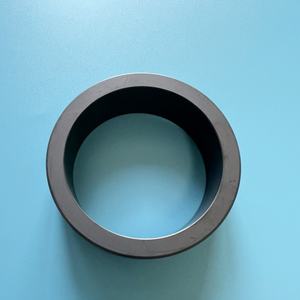
(B4C Boron carbide ceramic plate sheet tile)
REQUEST A QUOTE
RELATED PRODUCTS
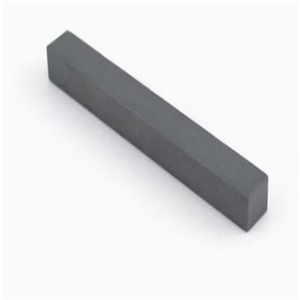
Boron Carbide Ballistic Ceramic in Hexagonal Tiles
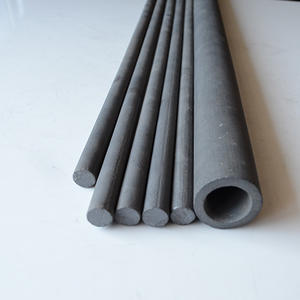
Pressureless Sintered Silicon Carbide Boron Carbide Ceramic Armor Plate for Self Denfence
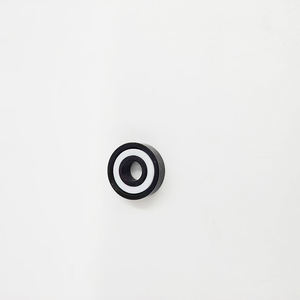
Hot Press Sintered Boron Carbide B4C Ball Boron Carbide Ceramic Protective Ball
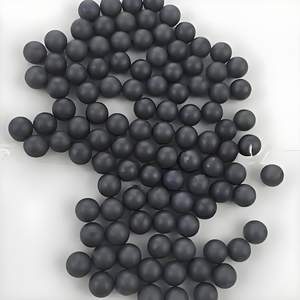
The Ceramic Materials Used for Ballistic Armor Plates Silicon Carbide (sic) Boron Carbide
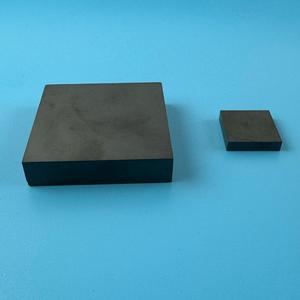
Customized Hexagonal Boron Carbide Silicon Carbide Ceramic Plate Tiles SIC Ceramic for Industrial Use Welding Cutting Services
